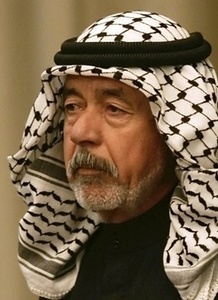Fight over Chemical Ali's execution
Updated: 2008-03-06 10:45
The Iraqi government is refusing to execute the Saddam Hussein henchman and cousin known as "Chemical Ali" unless the death sentences of two other Saddam-era officials also are approved.
The dispute pits the government of Prime Minister Nouri al-Maliki against the three-member presidential council, which moved last week to block the two other executions in what was seen as a possible attempt to appease minority Sunni Arabs.
|
|
The standoff underscores the often unclear lines of authority in Iraq and is another blow to Iraq's beleaguered judicial system.
Already on Wednesday, two former Health Ministry officials were released after being cleared on charges that they helped Shiite death squads operate by giving them access to hospitals and ambulances. There are widespread allegations of witness intimidation in those proceedings.
In the case of the executions, government spokesman Ali al-Dabbagh said in a telephone interview that al-Maliki's administration would not take custody of al-Majid alone and that it wanted all three men.
The US has custody of al-Majid as well as the two others, Hussein Rashid Mohammed, the former deputy director of operations for the Iraqi armed forces, and former defense minister Sultan Hashim al-Taie. US military spokesman Maj. Gen. Kevin Bergner said Wednesday that no request had yet been made to turn al-Majid over to Iraqi authorities.
Last Friday, Iraq's three-member presidential council -- President Jalal Talabani, a Kurd, along with the Sunni and Shiite vice presidents -- endorsed the death sentence of al-Majid, who earned the grim nickname "Chemical Ali" for gassing Kurd civilians during a brutal crackdown on their region in the 1980s.
The endorsement was thought to be the last step before carrying out al-Majid's sentence -- death by hanging -- within a month.
|
|||
Al-Majid won little sympathy when his sentence was handed down, but al-Taie and Mohammed were seen by some as career soldiers who were just following orders.
Many Sunni Arabs thought al-Taie's sentence was evidence that Shiite and Kurdish officials were persecuting the nation's once-dominant minority. Saddam and many of his closest advisers were Sunnis.
Sunni leaders, including Vice President Tariq al-Hashemi, launched a campaign to spare al-Taie, and the presidential council last week agreed not to execute either him or Mohammed.
Al-Maliki, a Shiite, finds that unacceptable.
|
|
|
||
|
||
|
|
|
|






